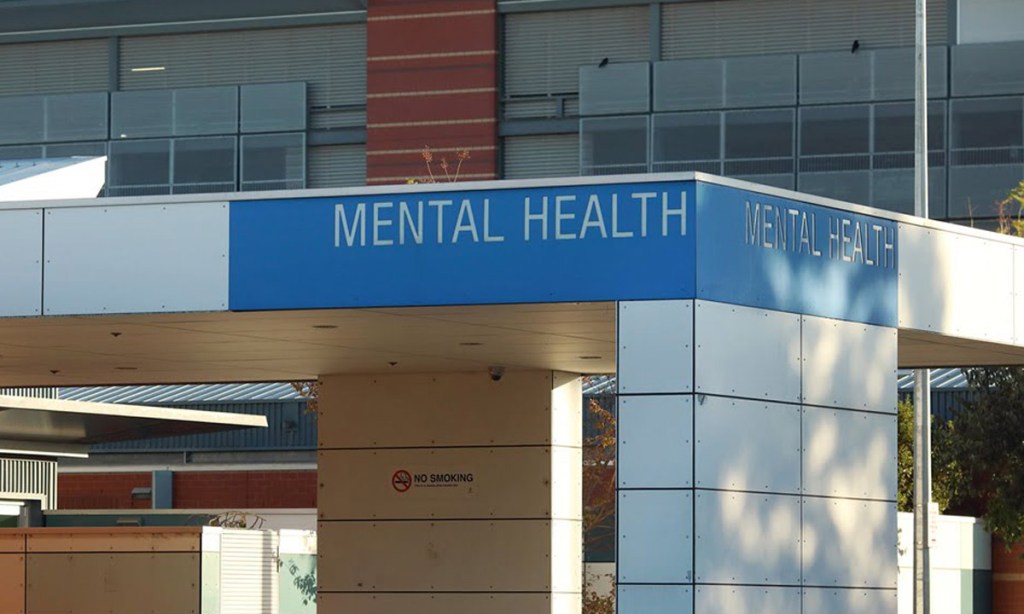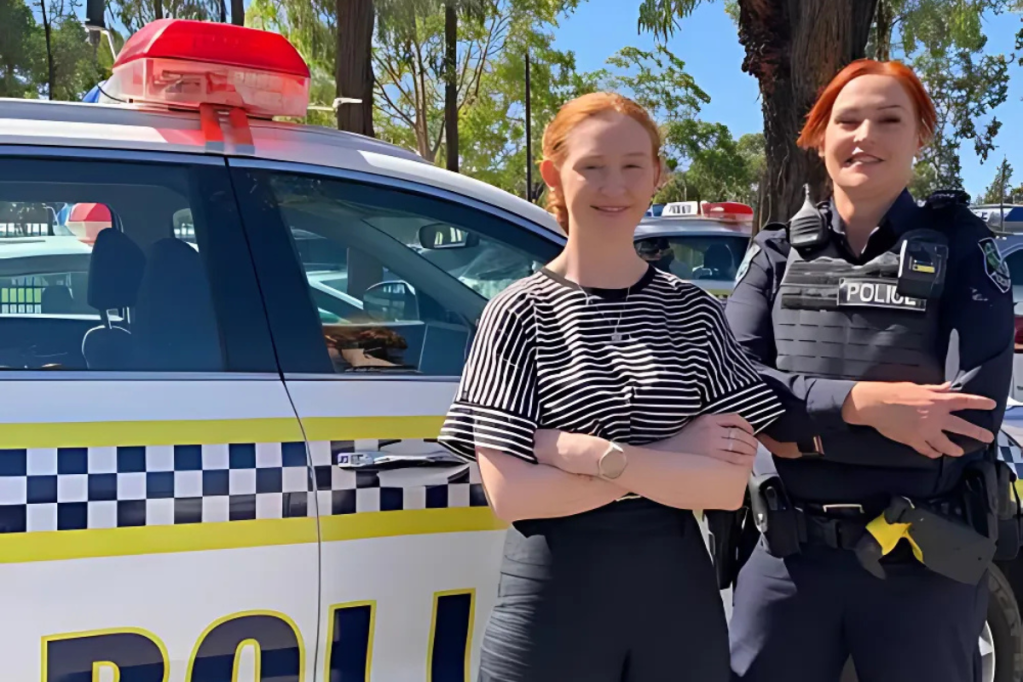When a distress call comes in, police aren’t the only ones responding. A new SA program pairs officers with health professionals – and it’s keeping thousands out of hospital.
A man disappears after sending a distressing text to his partner. When he finally returns home, the police are ready to take him to hospital – but mental health nurse Jenny Williams has another plan.
“I spent a couple of hours with him and his family,” Jenny says. “We talked through everything, came up with a plan, and found him a psychologist. He stayed home that night. No handcuffs. No sedation. No hospital.”
“We’re not here to fix people,” she says. “We’re just trying to keep them safe in the moment – and get them the right care, from the right person, at the right time.”

What the program is – and why it matters
Launched in 2022, the Co-Responder Program is a joint initiative between SA Health and SA Police (SAPOL) that pairs mental health nurses and allied health professionals with police officers to respond to triple zero callouts involving a mental health crisis.
It now operates across all of metropolitan Adelaide, backed by a $13.9 million state government investment over five years.
“Before this program, if police thought someone was a risk to themselves or others, they’d take them straight to hospital,” Jenny explains. “But most of those people don’t actually need to be in hospital – they need a proper mental health assessment, and community support.”
That’s where the co-responder team steps in. With full access to SA Health records, Jenny and her colleagues can de-escalate crises, assess risk on the spot, and often prevent unnecessary hospital visits altogether.
And the numbers back it up:
- 2,472 emergency department presentations have been avoided since 2022 – with around 800 more expected each year
- In Jenny’s team alone (across Central Adelaide Local Health Network), only 89 of more than 2,000 cases required hospitalisation.
“That’s better for the person in crisis, better for the police, and better for the health system,” Jenny says.
And for Jenny, that mission plays out in all kinds of places, at all kinds of hours.
What it’s like on the frontline
Jenny’s job isn’t your standard 9 to 5. She works 12-hour shifts from midday to midnight, travelling across Adelaide’s suburbs, the CBD, and into police cells.
“We see people wherever they are – in parks, cars, workplaces, even bus stops,” she says.
But despite the unpredictable settings, the approach is always the same: trauma-informed, non-judgemental care.
“We’re not doing a criminal interview. There’s no body-worn camera. It’s not about arresting someone – it’s about helping them.”
And it’s not just about who goes to hospital. It’s about how. “When someone does need hospital, we can do it in a calm, least-restrictive way,” Jenny says. “No police van, no handcuffs – just a proper referral, transport if needed, and a safe handover.”

A new kind of partnership
When the program started, Jenny admits there was a bit of an adjustment period. “You’ve got health people working out of a police station – different language, different mindset.”
But over time, trust grew.
“The police have been amazing,” she says. “They’ve welcomed us, supported us, and now they see how much we can help”.
Different lenses on the same crisis
Feedback directly from the police has been nothing short of positive.
And that trust matters – because mental health crises can look very different depending on the lens you’re using. SAPOL officers don’t have the same clinical training Jenny does – and that’s part of the reason the program works so well.
“Police see the consequences – the aggression, the distress, the chaos,” Jenny says. “But they haven’t had trauma-informed training, and that’s not their fault. Their job isn’t to unpack someone’s psychiatric history.”
Jenny, on the other hand, arrives with clinical expertise, access to records, and an understanding of how childhood trauma, psychosis, or substance use can affect behaviour.
“Sometimes the same behaviour can look risky to police, but understandable to us,” she says. “That’s why it’s so powerful to work together – we’re seeing the same thing, but through different lenses.”
That support goes both ways. Jenny’s presence means frontline officers can get advice, decompress after tough jobs, and better understand mental health presentations.
“There’s an incidental education piece,” she says. “We’re helping shift the culture – one conversation at a time.”

Freeing up police for frontline duties
And just as importantly, the program is freeing up police time.
“Before the program, police would spend up to six hours on a single mental health callout,” Jenny says. “Now it’s often under two – and sometimes we can take the job entirely off their hands.”
That means more officers available for frontline policing, and fewer people in crisis being taken to hospital simply because there was no better option.
What people are actually calling about
The jobs vary, but some themes come up often: family members worried about a loved one’s behaviour, people struggling with suicidal thoughts, drug or alcohol use, or distress linked to psychosis or trauma.
“Sometimes it’s a person in crisis. Sometimes it’s a well-meaning bystander. And sometimes it’s just a message sent in the heat of the moment,” Jenny says. “‘I’ve had enough,’ or ‘I’m done’ – vague statements on Snapchat or Facebook that trigger a whole police response.”
That can mean police searching for someone for 12 hours – checking their house, local parks, hospitals. All for a message that may reflect distress, but not imminent risk.
In those cases, a calm voice can make all the difference. “I’ll just text and say, ‘Hey, I’m a mental health nurse, the police are trying to find you – if you’d rather talk to me, give me a call.’ And they do.”
The hardest part – and the most rewarding
It’s not a job without pressure. Jenny carries significant clinical risk on her own, often making difficult judgment calls in real time – including deciding whether someone who’s expressed suicidal thoughts can safely remain in the community.
“You never know what might change an hour after you’ve left someone – a breakup, a substance, a trigger,” she says. “Risk is dynamic.”
But her decisions aren’t made in isolation. Jenny has access to comprehensive medical records, on-call psychiatrists, and support from Central Adelaide’s Mental Health Clinical Program – and she uses every bit of it.
And for Jenny, the rewards far outweigh the challenges.
“If I can help keep even one person safe in their own home, with support – that’s a win.”
Why it works – and why it matters
“People with mental illness often come from a foundation of trauma,” Jenny says. “And what they need isn’t judgment. It’s compassion. And options.”
She says it’s also important for the wider community to understand that not every difference in behaviour is a sign of danger.
“Some people will always have symptoms of their illness, even with treatment,” she says. “That doesn’t mean they need to be taken to hospital every time they’re a bit different. We need to be more accepting – to let people live safely on their own terms.”
If you or anyone you know is struggling, make sure to reach out to one of the mental health services available 24/7:
LifeLine: 13 11 14
Beyond Blue: 1300 22 46 36Mental Health Triage Services: 131 465
SA mental health services register

















